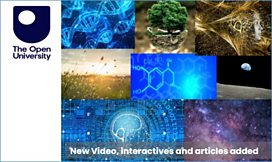Covid leaks and conspiracies
Ministers, scientific advice and the search for scientific facts on the pandemic.
Science writer Philip Ball has followed the relationship between government and its scientific advisors throughout the pandemic. He discusses the role of scientific advisors in the light of conflicting information following the leak of a number of former Health Minister Matt Hancock’s WhatsApp messages. Phil tells us why he believes greater transpearency is needed around the advice offered to government.
The head of the US FBI has suggested the Covid 19 pandemic may have been started through a leak from a laboratory. No evidence has been offered. The ‘lab leak ‘ theory is the counter idea to Covid having a natural origin.
We hear from three scientists who have been to China to investigate different aspects of the virus origins story.
Journalist and microbiologist Jane Qui visited the Wuhan Institute of Virology – the lab at the centre of the lab leak theory.
Marion Koopmans from Erasmus University in Rotterdam was a member of the WHO mission to China to investigate the origins of Covid 19.
And Eddie Holmes from the University of Sydney visited the market in Wuhan, the epicentre of the outbreak.
Besides inflating party balloons helium gas has a vast range of industrial uses, particularly as a coolant. There’s a world shortage, and helium is only extracted with fossil fuels such as coal and methane gas. Earth scientist Anran Cheng at the University of Oxford has developed a method to look for helium deposits without the fossil fuel connection.
And ever wondered how heavy all the animals in the world might be ? We have the answer thanks to Ron Milo and Lior Greenspoon from the Weizmann Institute of Science in Israel.
����ý Inside Science is produced in partnership with the Open University.
Presenter: Victoria Gill
Producer: Julian Siddle
Last on
More episodes
Previous
Next
![]()
����ý Inside Science is produced in partnership with The Open University.
Broadcasts
- Thu 2 Mar 2023 16:30����ý Radio 4
- Thu 2 Mar 2023 21:00����ý Radio 4
Explore further with The Open University
Discover more fascinating science content with The Open University
Podcast
-
![]()
����ý Inside Science
A weekly programme looking at the science that's changing our world.



